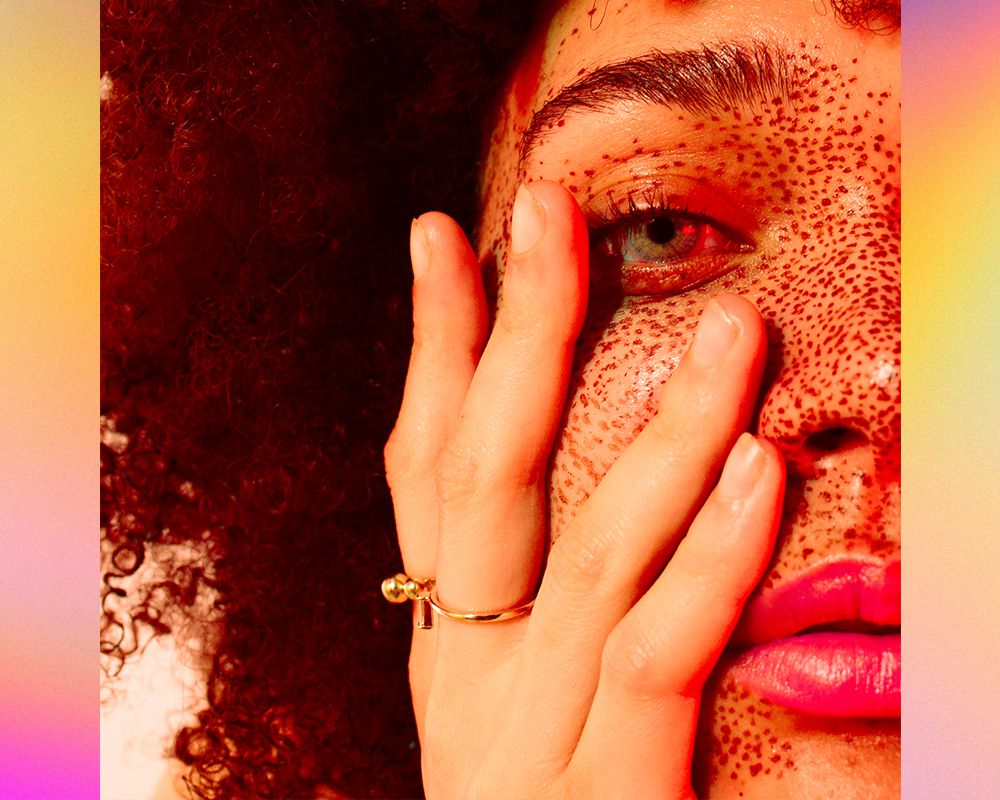Is Your Eye Constantly Twitching These Days? This Is Why

Have you ever been sitting there, just minding your own business, only for your eye to start twitching like mad? Believe it or not, it’s a pretty common occurrence. After all, there are myriad triggers that can cause eye twitching. Keep reading to find out what they are, and to determine if your eye twitching is manageable or something that should be assessed by a doctor ASAP.
The 3 Most Common Types of Eye Twitching
According to the Mayo Clinic, eye twitching is broken down into three categories: myokymia, benign essential blepharospasm, and hemifacial spasm. Generally speaking, myokymia is the most common form of eye twitching, in that it’s the type that is largely influenced by lifestyle factors. Benign essential blepharospasm and hemifacial spasm, on the other hand, are more severe medical issues, as they’re genetic and often don’t resolve on their own.
While some forms of eye twitching can be easily handled by making simple lifestyle changes, those with a history of blepharospasm may not have it so easy. Blepharospasm is the scientific name for sustained uncontrollable eye twitching and is often passed down between family members. As described in an article published in the Shanghai Archives of Psychiatry, blepharospasm twitches can last from seconds to minutes, or, in severe cases, hours. “It may be essentially benign or secondary due to a lesion in basal ganglia, pyramidal tract, trauma, local pathology in the eyes, or drug-induced,” the authors of the article explain.
According to Brad Brocwell, MD, VP of clinical operations for Now Optics, which includes retail brands Stanton Optical and My Eyelab, these longer-lasting forms of eye twitching are most often associated with multiple sclerosis, Parkinson’s Disease, Tourette’s Syndrome, and other brain and nervous system disorders.
If you suspect your eye twitching is aligned with blepharospasm (as opposed to lifestyle factors), your best bet is to visit a doctor as soon as possible. If, however, your twitches don’t last long and are few and far between, there’s a good chance that a lifestyle factor is to blame. With that in mind, keep reading for the six most common causes for eye twitching.
The 6 Most Common Causes for Eye Twitching
Stress
According to Brocwell, high stress is one of the number one causes for eye twitching. And, after a chaotic year like 2020, it’s safe to say everyone has experienced some level of high stress.
“If you feel a twitch coming on, try to reduce or remove your stressor,” he explains. This could mean setting boundaries with work, colleagues, family, and friends, making time to work out to help mitigate the effects of pent-up stress, or committing to closing out each day with meditation, a soothing hot shower, or an infrared sauna sesh. Whatever you choose to do, just make sure that it’s with lowering stress in mind.
Eye Strain
If you’ve been spending a lot of time on your phone, tablet, or computer—as so many of us have over the past year thanks to there being little else to do in terms of entertainment—Brocwell says to keep the 20-20-20 rule in mind to avoid eye strain and potential twitching. “Every 20 minutes, look away from your screen and look at an object 20 feet away for at least 20 seconds,” he explains, noting that it’s important to take frequent breaks from your screens. “This gives your eyes a chance to reset and should reduce eye strain.”
Fatigue/Lack of Sleep
Another reason your eyes might be randomly twitching? You’re not well rested. Brocwell says eye twitching can be a common telltale sign that you need to get a few extra z’s. As a gentle reminder, the National Sleep Foundation recommends that healthy adults get between seven and nine hours of sleep per night. While that may require some extra planning on your part, your body, mind, and eyes will thank you come morning.
Excess Caffeine Consumption
When you drink a lot of caffeine, your body becomes filled with excess energy. While the hope is that that excess will manifest in positive ways, such as prolonged focus, Brocwell says that it can lead to eye twitching, too. As such, if you notice your eyes are regularly twitching when you drink, say, three cups of coffee a day, try to cut back to one or two and monitor your lids for movement.
Excess Alcohol Consumption
As Brocwell points out and a review published in the Indian Journal of Medical Research confirms, excess alcohol consumption can not only lead to blurred vision but eye twitching, too. As with caffeine, the best way to avoid these symptoms is to cut back on your consumption.
Dry Eyes
If your eyes are super dry, Vivek Cherian, MD, an internal medicine physician affiliated with the University of Maryland Medical System, says that twitching could develop. “Dry-eye-induced twitching can be easily resolved with over-the-counter artificial tears,” he shares.
How to Stop Eye Twitching
Except for in the case of blepharospasm and hemifacial spasm eye twitches, Cherian says that all minor twitches tend to resolve on their own. “Changing your lifestyle can make all the difference (getting more sleep, cutting back on alcohol, caffeine, and so on),” he assures. “Lifestyle changes typically result in a complete resolution of eye twitching over a short period of time.”
When to See a Doctor About Eye Twitching
If you find that lifestyle changes aren’t making a noticeable improvement in how often your eyes twitch, it’s time to make an appointment with your doctor.
“You want to schedule an appointment with your primary care doctor if your eye twitching persists after a few weeks,” Cherian says, noting that eye twitching typically resolves on its own within a few days or a few weeks at most.
Additionally, Brocwell says that if you notice vision changes, double vision, prolonged redness, sensitivity to light, swelling, or a drooping eyelid—whether in accordance with the twitching or on its own—you should visit a doctor for their professional medical opinion.
QQ: Why Is My Period So Light?











